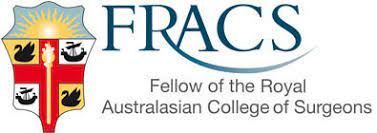Payment Types
Overview of Payment for Patients
This page explains of practice and payment policies relating to:
- the billing types our practice offers,
- the billing policies for our medical services, and
- further explanations to common fee questions
patients have.
Types of Patients
Our practice treats the following types of patients.
- Privately Insured Patients,
- Insurance Patients (Workers Compensation, Motor Accidents etc),
- Veteran Affairs Patients,
- Self Insured (or Self Funded) Patients, and
- Overseas Patients
- Public Patients
Public Patients
If you are not covered by private health insurance or other claiming system you do not need to be worried about it.
Dr Wang offers a wide range of diagnostic, medical and surgical services, if your require surgery there are two alternatives:
- Go on a Waiting List at the Public Hospital, or
- Pay for the operation yourself ("Self Insured" or "Self Funded")
Australian residents who decide to be a public patient are entitled to free treatment under Medicare. Your treatment will be carried out by an appropriate specialist which will be arranged prior to your admission. After discharge, your care will either be continued in an outpatient clinic or you will be referred to your local general practitioner.
In the public hospital, the surgery is sometimes performed by a registrar (specialist in training) but the registrar is supervised by a consultant urological surgeon who is responsible for your care.
There are no fees for surgery in the public hospital, however, there is a waiting list. Your position on the waiting list will be based on the urgency and severity of your condition. Your follow up visits after surgery will be arranged through the hospital or your specialist’s rooms.
Fee Estimates
We offer informed financial consent to all our patients prior to surgery. This is a pre-treatment estimate of your surgical costs.
While the fees charged may depend on the specific course of treatment, our practice's standard fees are in line with the Australian Medical Association recommended fee schedule. This means that there might be a ‘gap’ between our surgical fee and what is covered by Medicare and your health insurance fund. Dr Wang is committed to charging a fair and reasonable fee and will take individual circumstances into consideration.
The pre-treatment fee estimate includes the specific item numbers to be used and enables you to discuss with your health insurance company what you are covered for and if benefits are applicable.
If there is any problem with either the fee estimate or any other billing issue, it is important that you ask our staff. They can help you navigate what can be a complex process by either advising and helping explain the charges and rebate structure.
All Fee Categories
Our practice fees for either Consulting or Surgery may sometimes only be part of your treatment cost.
Other possible fees or disbursements involved in your care are dependent on which course of action is chosen for your treatment. You may need to also check with your health fund to see what is covered for additional areas of service. Potential fee categories to be sure of can include:
- Hospital Fees - Fees are payable directly to the hospital.
- Surgical Assistant Fees,
- Implants or Prosthesis Costs,
- Medications (if listed on the Pharmaceutical Benefits Scheme (PBS) schedule, you will receive a subsidy)
- Anaesthetists Fees - Fees are payable directly to the provider.
- Diagnostic Tests (Radiology, Pathology), and
- Post-Operative Care.
Questions to Ask Your Health Fund
- What is my annual monetary benefit limit for:
- General Surgical treatment and Major Surgical treatment?
- What service limits apply to my cover?
- When does my annual benefit limit expire?
- Do I have a waiting period? And when does it end?
- What kind of Surgical treatment is NOT covered?
About Our Fee Policy?
No Gap, Low Gap and Known Gap Policy
Our practice believes strongly in the importance of appropriate surgical care. We offer clear fee schedules for our patients, with service fees ranging across: No Gap, Low Gap, and Known Gap
Every person who has surgery cover with any Australian health fund and who are in financial hardship or pensioners may be covered by our No Gap Policy. This means some patients may receive no out-of-pocket expenses for some treatments .
Conditions for the No Gap Surgical Service include you must have:
- Basic Surgical cover with your private health insurer,
- Your health fund card with you at the appointment,
- Insurance cover for the cost of the treatment. If your limit is reached for services provided or your health insurer paid zero dollars, you will have to pay the difference.
Where you are not eligible for No Gap services, you may also be eligible for Known Gap or Low Gap Fee Schedules. Please contact our practice for further details.









